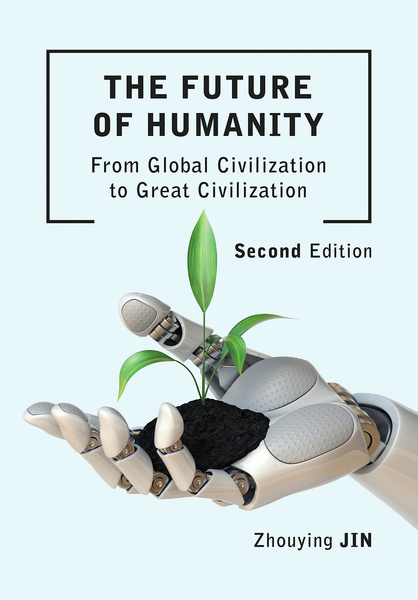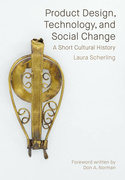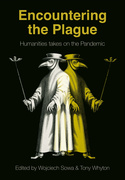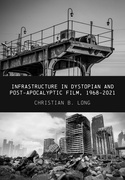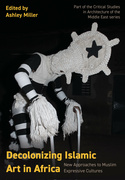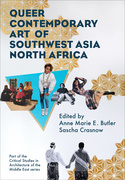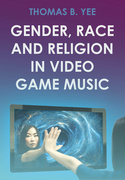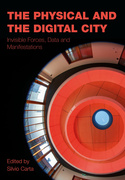The Future of Humanity (Second Edition) (Book)
From Global Civilization to Great Civilization (Second Edition)
Additional Prefaces from Theodore Jay Gordon, Hazel Henderson, Randeep Sudan, and new original material in each chapter. Considers impact of Covid-19 and influence beyond health and hygiene, impact on economic, social and geopolitical affairs, and the need to change established behaviour patterns including lifestyle, working practices and diet.
Edition
Additional Prefaces from Hazel Henderson, Randeep Sudan, and new additional original material has been added in each chapter.
New material has a particular focus on the impact of Covid-19 and its influence, which has gone beyond the fields of health and hygiene, deeply impacting the economic, social and even geopolitical affairs worldwide, subverting many aspects of the traditional market economy and disrupting social norms. This unexpected disaster is forcing human beings to rethink the axioms of what has long called “civilization.” find ways to coexist with other creatures who share the earth, and change many of our long-established behaviour patterns, including lifestyle, working practices and diet.
The world ushered in explosive technology development, giving human beings unlimited opportunities and reverie. At the same time, mankind faces a deeper crisis - beyond the climate change, ecological environment, the gap between rich and poor, regional conflicts and terrorist threats that people already recognize. That is the human evolution crisis, science and technology crisis and human civilization crisis brought by the development and application of technology, which makes us stand at the crossroads in the history of human civilization. This book calls on human beings to prepare for the future - to actively promote the transformation of Industrial Civilization, to promote the progress of human civilization, to meet Global Civilization and even Great Civilization.
Zhouying Jin contends that if human beings who share an earth cannot correctly grasp the direction of human evolution; if they cannot alter their destructive relationship with nature, and abandon “people-centred” and ‘’self-centred” thinking everywhere; if they cannot alleviate the threat of war and terrorism “as soon as possible” through the sublimation and perfection of human nature, and create a more advanced civilization; if they cannot deal with the planet’s common crises - climate change, species extinction, land and food shortages, water pollution, etc.; in short, if they cannot correctly learn the lessons of the current global catastrophe caused by the COVID-19; if they cannot promote the real awakening of all mankind; and cooperate to establish a new world order and accelerate the pace of civilizational transformation, then indeed the human race is doomed to move toward self-destruction long before the dangers posed by gene-enhanced Super-beings or robots endowed with artificial intelligence robots ever emerge.
Primary audience will be at university level across a broad range of subjects and disciplines, wherever students are studying topics connected to the future of mankind and the world.
Zhouying JIN is a senior researcher and professor at the Chinese Academy of Social Sciences (CASS); founder and former director of the Center for Technology Innovation and Strategy Studies of CASS; president and founder of the Beijing Academy of Soft Technology; Chair of China Chapter of World Future Society (WFS), Chair of China Node of millennium project (MP). She is listed by the Global Foresight Professionals as the only Chinese mainland futurist (http://www.globalforesight.org) and listed by Ross Dawson as the world’s top female futurist (http://rossdawson.com).
Foreword I
Theodore Jay Gordon
Foreword II
Hazel Henderson
Foreword III
Randeep Sudan
Foreword IV
Guangbi Dong
Foreword V
Lane Jennings
Acknowledgements
Introduction
1. Deep Concern over the Direction of Technology Development
2. The Crisis in Human Civilization Driven by the Theory of Scientific and Technological Omnipotence
3. What Is Technology?
4. What Kind of Civilization Should Human Beings Pursue?
5. The Difficult Task of Creating a Global Civilization
6. Can Humans Eventually Create a Great Civilization?
7. Integrate the Values of Global Civilization into the Practice of Sustainable Development—The Example of China
8. The Responsibility of Our Generation
References
Notes on the Author


